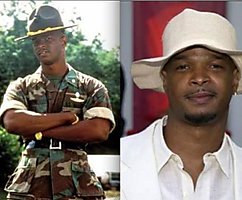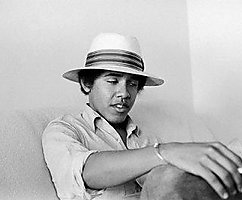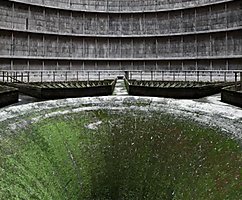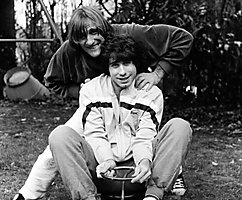Faith of the unbelievers: philosopher Simon Critchley about the surge of interest in political theology
 Bashny.Net
Bashny.Net
— There is a belief that the current theological revival is due to "a scarcity of theories, not the need for theology" (Alberto Toscano). In addition to the disaster that befell the Communist projects of the last century, are there other reasons for the unexpected, not to say overwhelming, the surge of interest in political theology?
— Interest in political theology grows out of the claims to liberalism. This concept, political theology, we first meet Bakunin. Originally it belonged to the Italian political thought of mid-nineteenth century, and was used in a pejorative sense. In the 1920s, Carl Schmitt picked it up and gave a somewhat different valence, but used all against liberalism, which, however, unlike Bakunin, attacked on the right, not the left.
Then was the beginning of the 1990s when after the collapse of the Warsaw Pact and the Soviet Union, great hopes were pinned on the emancipatory potential of democracy, but these hopes quickly sputtered out. Now return to the theological issues is not so much an appeal to Communist ideas as an attempt at the level of the deep motivational structures to find the understanding of personality and personality Association. One whom takes this issue, it is useful to look at the history of religious thought — and even, perhaps, primarily to her.
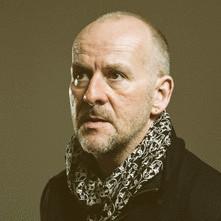
Simon Critchley — English philosopher, author of "democracy and disappointment: on the politics of resistance" and "the Book of dead philosophers". He currently teaches at The New School and writes on the topic of politics, religion, ethics and aesthetics. Critchley works within the tradition of continental philosophy. He argues with the assertion that philosophy begins with disappointment: religious or political.Personally, I've never been a purely secular thinker, secular ideas of modernity never been particularly fond of. Religious thinkers such as Paul, Pascal, Augustine and many others have always caused me great interest. I am convinced that deciding when philosophizing or building some theories certainly do without religion, you deprive yourself of access to fantastically useful archive of possibilities. In my opinion, philosophy is inconceivable without religion — without religion it is impossible to do philosophy, as it is impossible to do it based on religion alone. In this sense, I am not a theist. That is, the best, the brightest ideas borrowed from one tradition, it is applicable under another. So, "the Apostle Paul" Alain Badiou can serve the brightest example of what the philosopher refers to the religious source for thinking about politics.
To comprehend the nature of political forms — think of them as different forms of sacralization. From my point of view, the diversity of political forms — whether it be fascism, liberal democracy or Stalinism — is the variety of forms of the sacred. Every political form, something elevated to the sacred: the state, nation, race or something else. Therefore, the political history I am inclined to consider not as a movement from sacred to secular, and successive changes of beliefs about the sacred.
This approach in my case is extremely useful as a research tool, in particular, for the functioning of political forms in the United States, the country of my current residence. Here incredibly powerful political theology in the form of American civil religion, having huge impact on citizens.
Politics, in my view, is, roughly speaking, "Association without representation." This formula I borrowed from Rousseau. And the concept of "Association" for me is a religious order, though not purely religious. Religion is from the Latin religare, "to bind", "to unite". That connects people in the Association community? Not on this issue last couple of centuries beating leftist thought? Therefore, the religious tradition can't just go and throw, to declare unnecessary nonsense. It would be folly, act in many ways counterproductive.
— Referring to political theology, Terry Eagleton insists that faith is essentially performative, not propositional. This corresponds to what you write in your book about the nature of faith?
The considerations of Terry close to me and promise, apparently, become even closer. He started as a radical Catholic and now turned into a Marxist. In some sense, he remained true to himself as still criticizes liberal democracy and lying in its basis the secular theology of human rights, freedom, the value of individuality and so on.
Faith, in my view, not testicle. It does not necessarily presuppose belief in some metaphysical entity like God. Faith is a subjective statement, which is closely connected with what I call a requirement. She drew you a requirement that you, as a subject of ethics or politics can take.
Some people, like me, curiously are non-believers, but have the experience of faith in relation to the eternal demands — for example, in relation to the prohibition of killing or the importance of equality between people. The other belief is guaranteed present in their worldview the divine reality. In my opinion, on a subjective level there's no difference in believing in God or not. Attempts to understand it will only distract from the point. The important thing is not what you believe and how to act. I'm interested in religious projects based on the act, action, practice the same kind of American "black Christianity."
I agree with Terry that faith is a phenomenon rather not propositional but performative of the plan. Believe it or not Christmas it's not essential.
— Jean Luc Nancy in his "Deconstruction of Christianity" of the two apostles, rather, appeals to Jacob and not to Paul. The words of James that "faith without works is dead" is more important than the Pavlova of the fragility of will.
— This choice did and continue to do many. It was believed the French Jansenist that were in the seventeenth century, persecuted religious minority. For them, faith was action in this world.
"Some people, like me, curiously are non-believers, but have the experience of faith in relation to the eternal demands — for example, in relation to the prohibition of killing or the importance of equality between people. The other belief is guaranteed present in their worldview the divine reality. In my opinion, on a subjective level there's no difference in believing in God or not." We must distinguish between faith as action and faith as spirituality. Nowadays, a whole doctrine of the spirituality — in all their diversity of forms, it develops into what can be called new age religion new age. In this religion spirituality turned inward, so that everyone had a chance to find within themselves something sacred or divine, such that it was possible to cultivate among the horror and chaos of crumbling pieces of the world. In my view, faith is facing outward, spirituality inward. I wrote about this in an essay about Philip dick and Gnosticism, I have argued that it is Gnostic worldview, when the world seems bad and worthless, something like the matrix, the dream factory, which is charged with the powerful villains (the Gnostics called them archons), but each person retains a spark of the divine.
In my opinion, you are only interested in forms of spirituality, suggesting a passive negation, elimination from the world where still nothing can be changed. I these forms, but to understand them it is necessary — indeed, in the most General form of spirituality not connected to any beliefs. Therefore, it is so open and available appears to be Buddhism — it does not require something to believe. With the help of some Buddhist practices you can cultivate, or simply relax, relieve stress. In such a reaction to the chaos of the universe I do not see anything wrong. Passive denial of the surrounding world is unfounded, but to me this position seems wrong.
— In his book "Faith of unbelievers" you quote the words of Antonio Gramsci: "in Order to defeat Christianity, socialism must become a religion". What does this mean for the political movement or project to turn into a religion? And why such a transformation helps to achieve success?
— Turning to religion is important for a political project, because it allows you to attract even those who do not remove it from the immediate benefit for himself. As a religion, it encourages people to act one way or another. Religion, in my view, is what brings people together, encourages them to present a United front.
What to Gramsci, it was always more interesting to me than Marx and most modern Marxists have traditionally reevaluates the role of the social economy. Of course, socio-economic factors are extremely important, and it would be foolish to deny it. But in the sense of politics should pay more attention to single fronts, in which are combined for joint action carriers of different interests and beliefs — Gramsci calls such associations "historical blocs." Do not leave them in the place of religion and believers would be wrong. In the time of Gramsci, he writes, the Catholic Church was oppressively reactionary force, but it was possible to appeal to the leftist currents in Catholicism, with their help to involve people in their community. This community is design or poetic, in the broadest sense, religious. To create you want to include the political imagination.
What I write in "Faith of unbelievers" is connected with the idea, as I call it, the "Supreme fiction". In a world in which we live, the political sphere is the realm of fiction. This is Hobbes uses the concept of "artificial bodies and artificial souls." In this area to expose the fiction of popular sovereignty, that people's lives be in his hands, that we do not have any plutocracy and oligarchy, is to go from fiction to fact, and to replace just the invention of a kind of Supreme fiction, which we believe, although we understand that this is fiction. Such replacement is one possible way to formulate the content of a variety of political, poetic and religious projects.
For the success of the project two important components: conditionally conditionally romantic and pragmatic. Romantic is the idea of "Supreme fiction"; pragmatic — understanding that mass movements are formed not by the selection of participants and not by the planting of advanced ideas, and then, when you create an Association to which people want to join. So, for some time a growing movement to pay off wall street that is happening to him now is an open question.
— When in spite of our desires the reality is that the world likely will remain capitalist and unipolar — may be, in such a situation faith as a political resource is required more than knowledge?
— Both necessary, but Yes — faith more. I like the wording that was in the course of the Situationists: "Be realistic, demand the impossible". In a sense, to be left — that would be specifically that neither understood means to exist in spite of the fact. The power of ideology is so great that under the existing political regimes anyone who says they are a possible alternative, ludicrous. There's nothing you can do about it. In a world ruled by capitalism. It remains to deal with it.
— Mark Fisher calls this status quo of capitalist realism.
— Alternatives to capitalism at the moment. This fact, like it or not, it should be recognized and, accordingly, to moderate their demands. In this regard, any left, emancipatory project requires in our time faith in spite of the fact contractually, utopian faith in the fact that there is another way of ordering the world. In his "the Faith of unbelievers" I am writing about this variety of utopian ideas that the utopian tradition can not be written off as a phenomenon of the past, a curiosity of thought, or nonsense.
"In a certain sense, to be left — that would be specifically that neither understood means to exist in spite of the fact. The power of ideology is so great that under the existing political regimes anyone who says they are a possible alternative, ludicrous. There's nothing you can do about it. In a world ruled by capitalism. Remains to live with it". As for knowledge, it is, of course, is necessary — it would be foolish to deny it, but the knowledge rests on faith. This applies to some forms of scientific knowledge. According to generally accepted delusional view that science is a collection of knowledge about the structure of things. Whereas science is a form of faith. Science rests on belief in the species, which is not opposed to doubt, and the certainty of the fact. Bringing this idea to the extreme, we can say: what counts as knowledge in the current environment, a special way customized and structured, and any alternative point of view is declared to be a nonsense. To defend an alternative point of view in such a situation is possible only from a position of faith.
— Your debate with SlovoEd by Žižek, to some extent, helped to clarify the difference between the two political positions — the anarchist and autoritarisme. Both the socialists and the anarchists aim at the abolition of the state, but fundamentally disagree on the question of how to do it. Why, how notes Gabriel Kuhn, is still large obscure charm of the cult of "great": Lenin, Mao, Castro?
— A good question. It's all fantasy about the policy, committed by heroes on politics macho. They disturb me and disgust. In my opinion, the only value of our with Žižek debate, the only thing that it generally cost to start, just lies in the fact that we discussed the distinction between authoritarianism and anarchism, pointed to the fact that in the left authoritarianism is still alive Lenin longing for leaders and the heroism of political violence. The longing that I think it is wrong, naive and near — native speakers of it remind me of teenagers who, sitting in a room playing on the computer and listening to heavy metal, dream about impending disasters.
Many believe that the Arsenal is limited to left communism Marxist or Leninist sense. Meanwhile, there is a long tradition of anarchism — to it belong, among others, William Godwin, Bakunin, Kropotkin, Malatesta errico. From her numerous English followers, who were particularly interesting to me, called, for example, Colin ward. This tradition is not so catchy, much less heroic and dramatic. Its founders, you can probably count the diggers, put your carrots in the first years of the English revolution. To take confiscated communal land and grow vegetables on them — where's the romance? The storming of the Winter Palace — that is quite another matter. But all this nostalgia for allocational, heroic policy I definitely wasn't attracted to.
Take as an example the Occupy movement. There was no authoritarianism, no heroism or machismo, or the cult leaders. It was a well-organized Association of people driven by different motives. In the Park, Zucotti first, it was striking how many different groups here, as a lot of totally different people. Each holding a placard with your own statement — sometimes, Yes, absolutely schizophrenic — and it was great! About and what democracy looks like. The idea that the revolution will lead a cohesive, disciplined group of leaders, in our days, in my opinion, ridiculous. With its help, the left only alienate people. And perpetuate his romantic defeat.
— That anarchist ideas — in any case, associated with anarchism or declared in some groups of anarchists, — are the basis of political and social movements of the last twenty years, such as the alter-globalization and, later, to pay off wall street. In contrast to Marxist theory, anarchist tradition and was not tamed and institutionalized. How to explain this? Does not the fact that it better meets the practice of spontaneous political action and easier adapts to different situations than you criticized the Marxist "principle of abstraction" and "software political activity"?
— Absolutely. Even it is a pity that this formulation does not belong to me and you. Yes, anarchism sharpened by practice, under action, and if he has a weakness, it is a theory. Anarchism is suspicious of theorizing, not something that Marxism, which began with the solid thinker with a solid beard, who created the theory of everything. Marxism fits well with the Western notions of scholarship, that is why in academic circles as many of the Marxists who are always good with this doctrine fed. Anarchism is traditionally felt a distrust of theory and theoretical generalizations. Probably over the last 10 years things have changed and now universities are full of anarchists... Even if they are quite a bit sooner-it really was not. Anarchism was a lot of misfits. Now the scientific community is even considered with people like David Greber, but he and his associates took many years to achieve.
However, with a dubious attitude of anarchism to the theory is not so simple. Yes, you are right: the rejection of anarchism to the fundamental abstractions of the Marxist world Outlook, in my opinion, quite rightly, a focus of his practice is extremely useful in the sense of political activity. Anarchism can evolve depending on the situation, and this ability is extremely important. For all that, sometimes I want to proponents of anarchism have been more interested in its theoretical foundations. For example, the same very nice to me David Garber often covers such classic topics as freedom and social harmony, which require deeper theoretical understanding.
"As for knowledge, it is, of course, is necessary — it would be foolish to deny it, but the knowledge rests on faith. This applies to some forms of scientific knowledge. According to generally accepted delusional view that science is a collection of knowledge about the structure of things. Whereas science is a form of faith." In the book "to Demand to infinity", as in his last work, I reflect on the same themes, but otherwise, trying to rethink what he, a few years earlier called, as opposed to a classical libertarian anarchism, "infinitely responsible neoenergia". I think that compared to the 1960s, when he was reduced to the idea of emancipation, in particular, of sexual liberation, anarchism has undergone great changes. This is well illustrated by the example of the movement Occupy wall street. Strikingly, the participants effectively used the tools that commonly cause ridicule, are stupid and useless. In the Park, Zucotti it was possible to observe how the 400 people held a General Assembly — they do not use microphones and they do not charge. This is a fantastic spectacle. Together and United good will, people can get very, very much. I agree with you.
But attempts be adjusted to Occupy the Communist ideology, in my opinion, pure misunderstanding. Occupy is a mass, democratic action direct action.
Me personally in the movement Occupy wall street was mostly shaken by the fact that people know what to do. They are quite capable to take the situation into their own hands, to establish self-government. Goal Occupy and the "Arab spring" is, of course, is the purpose of the socialist in the sense to get financial capital to share power with the people. Activists of the "Arab spring" raise the question of re-nationalization, demanding the return of the people that think he has selected. This agenda is purely socialist. And the tactics through which people seek its execution, anarchist, and now everyone can see how effective it can be. The next wave of protest actions promises to give interesting food for thought. What's next? I'm guessing not undertake.
— Amid controversy about the possibility of instrumentalization of the state is increasingly arrogant neoliberal privatization, which leads to a "shrinking" of the state and transfer it into the hands of an increasingly narrow circle of people. Although it would be wrong to deny the existence of state power as such, but also the political relevance of the concept of nation-state, civil society activists direct their efforts to the opposition of financial institutions and corporations, which are blamed for the current economic and environmental crisis. And in your opinion, what is now the territory of politics?
— Zygmunt Bauman suggests, to imagine such a picture: here are the people comfortably sitting in the plane, fly where they want, read books, watch movies; and then they are told that the plane flies without a pilot, and after 10 minutes — the airport, where they expected to land, not just taking the flights and not even built because the builders did not get permission, well, or for some other reason. It is an allegory of our time. We quietly move somewhere, assuming that none of the movement does not direct, because the policy and power are separated from one another. To begin with, I think, is what we need to understand about the separation of policy from the government; we still believe — I do not know, cowardice is a romantic or a relic — that power belongs to politics, and the confluence of politics and power is the state. We still want to believe that the state is the real master of the situation, although all the evidence suggests that it is not.
In connection with oligarchically — I don't know what else to call the transformation of liberal democracy into a plutocracy that occurred over the past thirty or forty years on the Reagan, Thatcher and the like — appeared and strengthened the idea that politics is at the service of power and not responsible for political decisions. For granted when it is accepted that the state only serves the interests of capital that has no national ties — it is transnational and led a nomadic existence, with the threat of higher taxes easily transfers production from one place to another.
That is, the policy territory is, first, the establishment of the policy and the slogan here could be: "there is no politics without location". Policy needs to be localized, tied to the place. If we talk about USA, new York, where I live, the most unpleasant in all this struggle, the Democrats and the Republicans — not localized. Whereas what is happening, and Park Zucotti firmly tied to place. In the Park formed the grounds of the resistance — area resistance that unfolded around very vague and wonderful inexhaustible requirements.
"The entire current political system, I consider it unnecessary overkill, and the sooner it will cease to exist, the better. Last year — I mean the "Arab spring" and other events — a brilliant have shown that you should stop being afraid of the masses to assert themselves in the face of the ruling minority, as the minority have no chance". For me, politics is the creation of the site. There are many examples — the most obvious, perhaps, is that current events in Europe. In particular, for example, what is now happening in Greece, where the state exists solely in order to serve the interests of international financial organizations and the European Union. For this reason Greece has not left the slightest reason to be called a democratic country.
What is the purpose of the policy? Her goal is to create a territory. Anarchism, as we know, a very positive attitude to federalism. Anarchism denies that the state is not in the name of chaos, and in the name otherwise organized order, based on various forms of local autonomy. I would really like to see — and, in my opinion, this picture is not so unrealistic, as in the next ten to twenty years all EU countries will fall apart, and the Europeans will be able to organize a Federation of self-governing territories.
Because policies without a specific place does not happen, the goal is to get control of the place where you live, think, work and eat. This is the creation site. Deny us the right to the territory because we have delegated his authority to the representatives who do not represent us. The entire current political system, I consider it unnecessary overkill, and the sooner it will cease to exist, the better. Last year — I mean the "Arab spring" and other events — a brilliant have shown that you should stop being afraid of the masses to assert themselves in the face of the ruling minority, like the minority no chance.
In Britain this also could happen. After all, political parties have, by and large, no longer needed. In the 1980s I was a member of the labour party, then the party a lot of people came from among the extreme left, because it was necessary to fight Thatcherism. But then the labour party was a socialist in her files are still in the Fourth paragraph... And now the political parties is one husks, ghosts what does not exist anymore. Why then not have the courage to get rid of them once and for all?
Source: theoryandpractice.ru
— Interest in political theology grows out of the claims to liberalism. This concept, political theology, we first meet Bakunin. Originally it belonged to the Italian political thought of mid-nineteenth century, and was used in a pejorative sense. In the 1920s, Carl Schmitt picked it up and gave a somewhat different valence, but used all against liberalism, which, however, unlike Bakunin, attacked on the right, not the left.
Then was the beginning of the 1990s when after the collapse of the Warsaw Pact and the Soviet Union, great hopes were pinned on the emancipatory potential of democracy, but these hopes quickly sputtered out. Now return to the theological issues is not so much an appeal to Communist ideas as an attempt at the level of the deep motivational structures to find the understanding of personality and personality Association. One whom takes this issue, it is useful to look at the history of religious thought — and even, perhaps, primarily to her.

Simon Critchley — English philosopher, author of "democracy and disappointment: on the politics of resistance" and "the Book of dead philosophers". He currently teaches at The New School and writes on the topic of politics, religion, ethics and aesthetics. Critchley works within the tradition of continental philosophy. He argues with the assertion that philosophy begins with disappointment: religious or political.Personally, I've never been a purely secular thinker, secular ideas of modernity never been particularly fond of. Religious thinkers such as Paul, Pascal, Augustine and many others have always caused me great interest. I am convinced that deciding when philosophizing or building some theories certainly do without religion, you deprive yourself of access to fantastically useful archive of possibilities. In my opinion, philosophy is inconceivable without religion — without religion it is impossible to do philosophy, as it is impossible to do it based on religion alone. In this sense, I am not a theist. That is, the best, the brightest ideas borrowed from one tradition, it is applicable under another. So, "the Apostle Paul" Alain Badiou can serve the brightest example of what the philosopher refers to the religious source for thinking about politics.
To comprehend the nature of political forms — think of them as different forms of sacralization. From my point of view, the diversity of political forms — whether it be fascism, liberal democracy or Stalinism — is the variety of forms of the sacred. Every political form, something elevated to the sacred: the state, nation, race or something else. Therefore, the political history I am inclined to consider not as a movement from sacred to secular, and successive changes of beliefs about the sacred.
This approach in my case is extremely useful as a research tool, in particular, for the functioning of political forms in the United States, the country of my current residence. Here incredibly powerful political theology in the form of American civil religion, having huge impact on citizens.
Politics, in my view, is, roughly speaking, "Association without representation." This formula I borrowed from Rousseau. And the concept of "Association" for me is a religious order, though not purely religious. Religion is from the Latin religare, "to bind", "to unite". That connects people in the Association community? Not on this issue last couple of centuries beating leftist thought? Therefore, the religious tradition can't just go and throw, to declare unnecessary nonsense. It would be folly, act in many ways counterproductive.
— Referring to political theology, Terry Eagleton insists that faith is essentially performative, not propositional. This corresponds to what you write in your book about the nature of faith?
The considerations of Terry close to me and promise, apparently, become even closer. He started as a radical Catholic and now turned into a Marxist. In some sense, he remained true to himself as still criticizes liberal democracy and lying in its basis the secular theology of human rights, freedom, the value of individuality and so on.
Faith, in my view, not testicle. It does not necessarily presuppose belief in some metaphysical entity like God. Faith is a subjective statement, which is closely connected with what I call a requirement. She drew you a requirement that you, as a subject of ethics or politics can take.
Some people, like me, curiously are non-believers, but have the experience of faith in relation to the eternal demands — for example, in relation to the prohibition of killing or the importance of equality between people. The other belief is guaranteed present in their worldview the divine reality. In my opinion, on a subjective level there's no difference in believing in God or not. Attempts to understand it will only distract from the point. The important thing is not what you believe and how to act. I'm interested in religious projects based on the act, action, practice the same kind of American "black Christianity."
I agree with Terry that faith is a phenomenon rather not propositional but performative of the plan. Believe it or not Christmas it's not essential.
— Jean Luc Nancy in his "Deconstruction of Christianity" of the two apostles, rather, appeals to Jacob and not to Paul. The words of James that "faith without works is dead" is more important than the Pavlova of the fragility of will.
— This choice did and continue to do many. It was believed the French Jansenist that were in the seventeenth century, persecuted religious minority. For them, faith was action in this world.
"Some people, like me, curiously are non-believers, but have the experience of faith in relation to the eternal demands — for example, in relation to the prohibition of killing or the importance of equality between people. The other belief is guaranteed present in their worldview the divine reality. In my opinion, on a subjective level there's no difference in believing in God or not." We must distinguish between faith as action and faith as spirituality. Nowadays, a whole doctrine of the spirituality — in all their diversity of forms, it develops into what can be called new age religion new age. In this religion spirituality turned inward, so that everyone had a chance to find within themselves something sacred or divine, such that it was possible to cultivate among the horror and chaos of crumbling pieces of the world. In my view, faith is facing outward, spirituality inward. I wrote about this in an essay about Philip dick and Gnosticism, I have argued that it is Gnostic worldview, when the world seems bad and worthless, something like the matrix, the dream factory, which is charged with the powerful villains (the Gnostics called them archons), but each person retains a spark of the divine.
In my opinion, you are only interested in forms of spirituality, suggesting a passive negation, elimination from the world where still nothing can be changed. I these forms, but to understand them it is necessary — indeed, in the most General form of spirituality not connected to any beliefs. Therefore, it is so open and available appears to be Buddhism — it does not require something to believe. With the help of some Buddhist practices you can cultivate, or simply relax, relieve stress. In such a reaction to the chaos of the universe I do not see anything wrong. Passive denial of the surrounding world is unfounded, but to me this position seems wrong.
— In his book "Faith of unbelievers" you quote the words of Antonio Gramsci: "in Order to defeat Christianity, socialism must become a religion". What does this mean for the political movement or project to turn into a religion? And why such a transformation helps to achieve success?
— Turning to religion is important for a political project, because it allows you to attract even those who do not remove it from the immediate benefit for himself. As a religion, it encourages people to act one way or another. Religion, in my view, is what brings people together, encourages them to present a United front.
What to Gramsci, it was always more interesting to me than Marx and most modern Marxists have traditionally reevaluates the role of the social economy. Of course, socio-economic factors are extremely important, and it would be foolish to deny it. But in the sense of politics should pay more attention to single fronts, in which are combined for joint action carriers of different interests and beliefs — Gramsci calls such associations "historical blocs." Do not leave them in the place of religion and believers would be wrong. In the time of Gramsci, he writes, the Catholic Church was oppressively reactionary force, but it was possible to appeal to the leftist currents in Catholicism, with their help to involve people in their community. This community is design or poetic, in the broadest sense, religious. To create you want to include the political imagination.
What I write in "Faith of unbelievers" is connected with the idea, as I call it, the "Supreme fiction". In a world in which we live, the political sphere is the realm of fiction. This is Hobbes uses the concept of "artificial bodies and artificial souls." In this area to expose the fiction of popular sovereignty, that people's lives be in his hands, that we do not have any plutocracy and oligarchy, is to go from fiction to fact, and to replace just the invention of a kind of Supreme fiction, which we believe, although we understand that this is fiction. Such replacement is one possible way to formulate the content of a variety of political, poetic and religious projects.
For the success of the project two important components: conditionally conditionally romantic and pragmatic. Romantic is the idea of "Supreme fiction"; pragmatic — understanding that mass movements are formed not by the selection of participants and not by the planting of advanced ideas, and then, when you create an Association to which people want to join. So, for some time a growing movement to pay off wall street that is happening to him now is an open question.
— When in spite of our desires the reality is that the world likely will remain capitalist and unipolar — may be, in such a situation faith as a political resource is required more than knowledge?
— Both necessary, but Yes — faith more. I like the wording that was in the course of the Situationists: "Be realistic, demand the impossible". In a sense, to be left — that would be specifically that neither understood means to exist in spite of the fact. The power of ideology is so great that under the existing political regimes anyone who says they are a possible alternative, ludicrous. There's nothing you can do about it. In a world ruled by capitalism. It remains to deal with it.
— Mark Fisher calls this status quo of capitalist realism.
— Alternatives to capitalism at the moment. This fact, like it or not, it should be recognized and, accordingly, to moderate their demands. In this regard, any left, emancipatory project requires in our time faith in spite of the fact contractually, utopian faith in the fact that there is another way of ordering the world. In his "the Faith of unbelievers" I am writing about this variety of utopian ideas that the utopian tradition can not be written off as a phenomenon of the past, a curiosity of thought, or nonsense.
"In a certain sense, to be left — that would be specifically that neither understood means to exist in spite of the fact. The power of ideology is so great that under the existing political regimes anyone who says they are a possible alternative, ludicrous. There's nothing you can do about it. In a world ruled by capitalism. Remains to live with it". As for knowledge, it is, of course, is necessary — it would be foolish to deny it, but the knowledge rests on faith. This applies to some forms of scientific knowledge. According to generally accepted delusional view that science is a collection of knowledge about the structure of things. Whereas science is a form of faith. Science rests on belief in the species, which is not opposed to doubt, and the certainty of the fact. Bringing this idea to the extreme, we can say: what counts as knowledge in the current environment, a special way customized and structured, and any alternative point of view is declared to be a nonsense. To defend an alternative point of view in such a situation is possible only from a position of faith.
— Your debate with SlovoEd by Žižek, to some extent, helped to clarify the difference between the two political positions — the anarchist and autoritarisme. Both the socialists and the anarchists aim at the abolition of the state, but fundamentally disagree on the question of how to do it. Why, how notes Gabriel Kuhn, is still large obscure charm of the cult of "great": Lenin, Mao, Castro?
— A good question. It's all fantasy about the policy, committed by heroes on politics macho. They disturb me and disgust. In my opinion, the only value of our with Žižek debate, the only thing that it generally cost to start, just lies in the fact that we discussed the distinction between authoritarianism and anarchism, pointed to the fact that in the left authoritarianism is still alive Lenin longing for leaders and the heroism of political violence. The longing that I think it is wrong, naive and near — native speakers of it remind me of teenagers who, sitting in a room playing on the computer and listening to heavy metal, dream about impending disasters.
Many believe that the Arsenal is limited to left communism Marxist or Leninist sense. Meanwhile, there is a long tradition of anarchism — to it belong, among others, William Godwin, Bakunin, Kropotkin, Malatesta errico. From her numerous English followers, who were particularly interesting to me, called, for example, Colin ward. This tradition is not so catchy, much less heroic and dramatic. Its founders, you can probably count the diggers, put your carrots in the first years of the English revolution. To take confiscated communal land and grow vegetables on them — where's the romance? The storming of the Winter Palace — that is quite another matter. But all this nostalgia for allocational, heroic policy I definitely wasn't attracted to.
Take as an example the Occupy movement. There was no authoritarianism, no heroism or machismo, or the cult leaders. It was a well-organized Association of people driven by different motives. In the Park, Zucotti first, it was striking how many different groups here, as a lot of totally different people. Each holding a placard with your own statement — sometimes, Yes, absolutely schizophrenic — and it was great! About and what democracy looks like. The idea that the revolution will lead a cohesive, disciplined group of leaders, in our days, in my opinion, ridiculous. With its help, the left only alienate people. And perpetuate his romantic defeat.
— That anarchist ideas — in any case, associated with anarchism or declared in some groups of anarchists, — are the basis of political and social movements of the last twenty years, such as the alter-globalization and, later, to pay off wall street. In contrast to Marxist theory, anarchist tradition and was not tamed and institutionalized. How to explain this? Does not the fact that it better meets the practice of spontaneous political action and easier adapts to different situations than you criticized the Marxist "principle of abstraction" and "software political activity"?
— Absolutely. Even it is a pity that this formulation does not belong to me and you. Yes, anarchism sharpened by practice, under action, and if he has a weakness, it is a theory. Anarchism is suspicious of theorizing, not something that Marxism, which began with the solid thinker with a solid beard, who created the theory of everything. Marxism fits well with the Western notions of scholarship, that is why in academic circles as many of the Marxists who are always good with this doctrine fed. Anarchism is traditionally felt a distrust of theory and theoretical generalizations. Probably over the last 10 years things have changed and now universities are full of anarchists... Even if they are quite a bit sooner-it really was not. Anarchism was a lot of misfits. Now the scientific community is even considered with people like David Greber, but he and his associates took many years to achieve.
However, with a dubious attitude of anarchism to the theory is not so simple. Yes, you are right: the rejection of anarchism to the fundamental abstractions of the Marxist world Outlook, in my opinion, quite rightly, a focus of his practice is extremely useful in the sense of political activity. Anarchism can evolve depending on the situation, and this ability is extremely important. For all that, sometimes I want to proponents of anarchism have been more interested in its theoretical foundations. For example, the same very nice to me David Garber often covers such classic topics as freedom and social harmony, which require deeper theoretical understanding.
"As for knowledge, it is, of course, is necessary — it would be foolish to deny it, but the knowledge rests on faith. This applies to some forms of scientific knowledge. According to generally accepted delusional view that science is a collection of knowledge about the structure of things. Whereas science is a form of faith." In the book "to Demand to infinity", as in his last work, I reflect on the same themes, but otherwise, trying to rethink what he, a few years earlier called, as opposed to a classical libertarian anarchism, "infinitely responsible neoenergia". I think that compared to the 1960s, when he was reduced to the idea of emancipation, in particular, of sexual liberation, anarchism has undergone great changes. This is well illustrated by the example of the movement Occupy wall street. Strikingly, the participants effectively used the tools that commonly cause ridicule, are stupid and useless. In the Park, Zucotti it was possible to observe how the 400 people held a General Assembly — they do not use microphones and they do not charge. This is a fantastic spectacle. Together and United good will, people can get very, very much. I agree with you.
But attempts be adjusted to Occupy the Communist ideology, in my opinion, pure misunderstanding. Occupy is a mass, democratic action direct action.
Me personally in the movement Occupy wall street was mostly shaken by the fact that people know what to do. They are quite capable to take the situation into their own hands, to establish self-government. Goal Occupy and the "Arab spring" is, of course, is the purpose of the socialist in the sense to get financial capital to share power with the people. Activists of the "Arab spring" raise the question of re-nationalization, demanding the return of the people that think he has selected. This agenda is purely socialist. And the tactics through which people seek its execution, anarchist, and now everyone can see how effective it can be. The next wave of protest actions promises to give interesting food for thought. What's next? I'm guessing not undertake.
— Amid controversy about the possibility of instrumentalization of the state is increasingly arrogant neoliberal privatization, which leads to a "shrinking" of the state and transfer it into the hands of an increasingly narrow circle of people. Although it would be wrong to deny the existence of state power as such, but also the political relevance of the concept of nation-state, civil society activists direct their efforts to the opposition of financial institutions and corporations, which are blamed for the current economic and environmental crisis. And in your opinion, what is now the territory of politics?
— Zygmunt Bauman suggests, to imagine such a picture: here are the people comfortably sitting in the plane, fly where they want, read books, watch movies; and then they are told that the plane flies without a pilot, and after 10 minutes — the airport, where they expected to land, not just taking the flights and not even built because the builders did not get permission, well, or for some other reason. It is an allegory of our time. We quietly move somewhere, assuming that none of the movement does not direct, because the policy and power are separated from one another. To begin with, I think, is what we need to understand about the separation of policy from the government; we still believe — I do not know, cowardice is a romantic or a relic — that power belongs to politics, and the confluence of politics and power is the state. We still want to believe that the state is the real master of the situation, although all the evidence suggests that it is not.
In connection with oligarchically — I don't know what else to call the transformation of liberal democracy into a plutocracy that occurred over the past thirty or forty years on the Reagan, Thatcher and the like — appeared and strengthened the idea that politics is at the service of power and not responsible for political decisions. For granted when it is accepted that the state only serves the interests of capital that has no national ties — it is transnational and led a nomadic existence, with the threat of higher taxes easily transfers production from one place to another.
That is, the policy territory is, first, the establishment of the policy and the slogan here could be: "there is no politics without location". Policy needs to be localized, tied to the place. If we talk about USA, new York, where I live, the most unpleasant in all this struggle, the Democrats and the Republicans — not localized. Whereas what is happening, and Park Zucotti firmly tied to place. In the Park formed the grounds of the resistance — area resistance that unfolded around very vague and wonderful inexhaustible requirements.
"The entire current political system, I consider it unnecessary overkill, and the sooner it will cease to exist, the better. Last year — I mean the "Arab spring" and other events — a brilliant have shown that you should stop being afraid of the masses to assert themselves in the face of the ruling minority, as the minority have no chance". For me, politics is the creation of the site. There are many examples — the most obvious, perhaps, is that current events in Europe. In particular, for example, what is now happening in Greece, where the state exists solely in order to serve the interests of international financial organizations and the European Union. For this reason Greece has not left the slightest reason to be called a democratic country.
What is the purpose of the policy? Her goal is to create a territory. Anarchism, as we know, a very positive attitude to federalism. Anarchism denies that the state is not in the name of chaos, and in the name otherwise organized order, based on various forms of local autonomy. I would really like to see — and, in my opinion, this picture is not so unrealistic, as in the next ten to twenty years all EU countries will fall apart, and the Europeans will be able to organize a Federation of self-governing territories.
Because policies without a specific place does not happen, the goal is to get control of the place where you live, think, work and eat. This is the creation site. Deny us the right to the territory because we have delegated his authority to the representatives who do not represent us. The entire current political system, I consider it unnecessary overkill, and the sooner it will cease to exist, the better. Last year — I mean the "Arab spring" and other events — a brilliant have shown that you should stop being afraid of the masses to assert themselves in the face of the ruling minority, like the minority no chance.
In Britain this also could happen. After all, political parties have, by and large, no longer needed. In the 1980s I was a member of the labour party, then the party a lot of people came from among the extreme left, because it was necessary to fight Thatcherism. But then the labour party was a socialist in her files are still in the Fourth paragraph... And now the political parties is one husks, ghosts what does not exist anymore. Why then not have the courage to get rid of them once and for all?
Source: theoryandpractice.ru
Tags
See also
The most influential books of the twentieth century
Sex. Attempt to take a sober look at the sexual relationship
The power of indifference: how the philosophy of stoicism helps to live and work
Nuclear physicist radium Ilkaev: we Have everything. It is only necessary to include brains
Does the sign of the cross "bactericidal effect"
Those who came before us?
Why a man's life is worth?
UNESCO heritage

